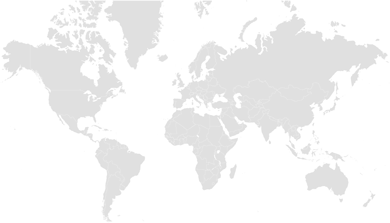Case study
2024 • Waste Concern; World Wide Recycling (WWR) Market Waste Composting in Bangladesh
This case study showcases a large-scale composting project in Bangladesh, developed through a joint venture between Waste Concern and World Wide Recycling (WWR). The initiative processes organic market waste into compost, leveraging public-private partnerships, carbon credit revenues, and an extensive fertilizer distribution network. The project is a pioneering effort in Bangladesh’s composting industry, addressing organic waste management challenges while contributing to sustainable agriculture.
Recovered Materials & Products
Compost
Waste Streams
Organic solid waste
Confirmed countries
Mexico


Background and Context
Location: Dhaka, Bangladesh
Resource Stream: Market organic waste (vegetables, food scraps)
Challenges: Bangladesh generates 4.86 million tonnes of municipal solid waste (MSW) annually, with 70-85% comprising biodegradable materials. Limited composting infrastructure, heavy reliance on chemical fertilizers, and lack of public awareness hinder effective organic waste management.
Technologies/Methods Used
- Static Pile Composting with Forced Aeration: Organic waste is decomposed in eight composting cells using aeration and natural processes, followed by maturation and screening to ensure product quality.
- Preprocessing and Postprocessing: Waste is pre-sorted to remove inert materials before composting and processed further into nutrient-rich compost suitable for agriculture.
- Distribution through ACI: Compost is marketed and distributed through ACI’s extensive network, reaching farmers across Bangladesh.
Implementation Steps
Waste Concern started with a 3 MTPD facility in 1995, expanding through joint ventures to a 130 MTPD capacity plant in Bulta, Narayanganj, in 2009. The project was the first composting initiative registered under the Clean Development Mechanism (CDM) in 2008, earning $1.5 million in carbon credits before the carbon market’s decline in 2012.
- Public-Private Collaboration: The partnership between Waste Concern, WWR, and ACI ensured feedstock supply, operational funding, and product distribution.
- Policy and Financial Support: Tax exemptions and reduced import duties for recycling plants, along with soft loans and grants, supported the project’s financial viability.
Outcomes and Impacts
Environmental Benefits: Diverted over 102,183 tonnes of waste from landfills, reducing greenhouse gas emissions by 386,236 MT CO2 equivalent. Enhanced soil quality and reduced reliance on chemical fertilizers.
Economic Contributions: Created jobs in waste collection and compost production. Generated significant revenue through compost sales and carbon credits.
Social Impact: Raised awareness among farmers about compost benefits through training and promotional campaigns.
Improved waste management practices in urban areas.
Lessons Learned
The project highlights the importance of strategic partnerships, carbon financing, and policy support for scaling composting operations. Challenges such as dependency on carbon revenues and competition with subsidized chemical fertilizers underscore the need for sustained policy incentives and market development for compost products.
Learn more
This case study is extracted from the publication linked below: "Sustainable Financing and Policy Models for Municipal Composting. World Bank (2016)"
https://openknowledge.worldbank.org/entities/publication/e1aac77a-5258-5927-9268-847c754cb9f5
Technologies
Composting
Themes
Financing and investment
Public-private partnerships